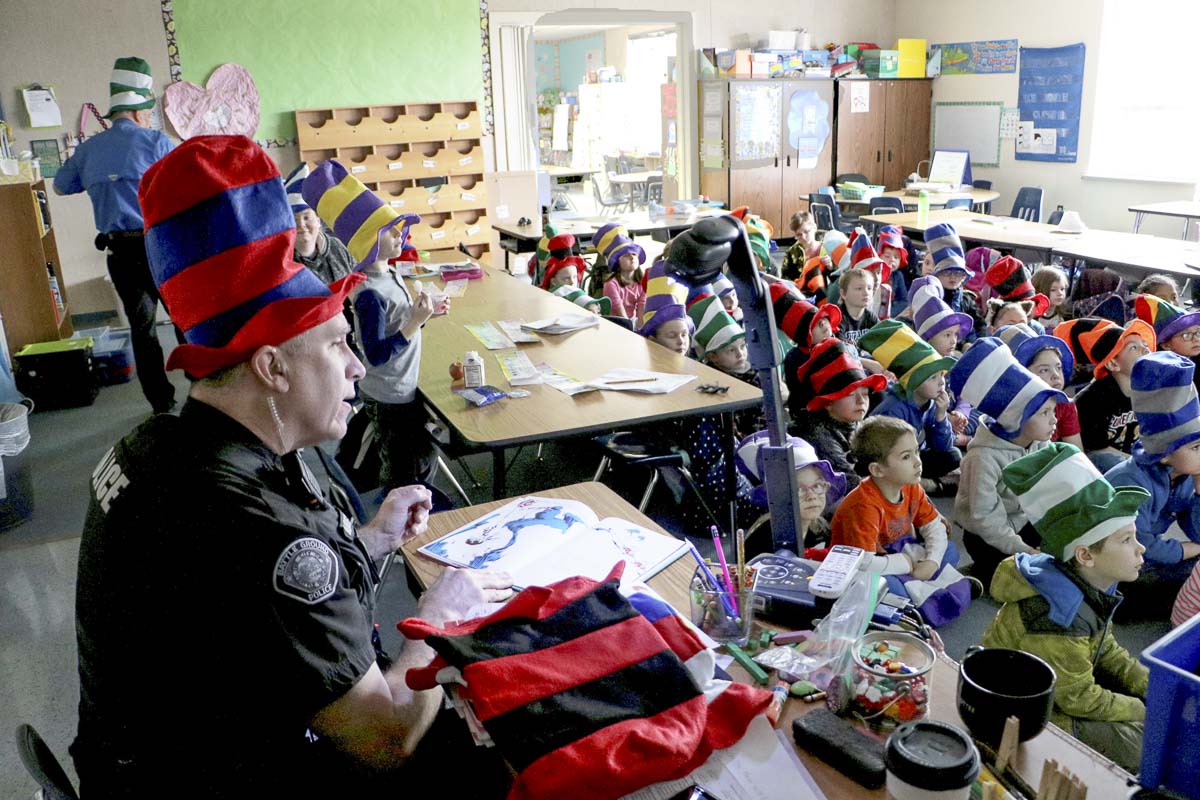The school district still needs to give the new SRO final approval
BATTLE GROUND — Battle Ground Police Chief Mike Fort had to catch himself a couple of times during Monday’s City Council meeting, admitting he was stumbling over himself in an effort to sell the merits of adding a second School Resource Officer (SRO) to the school district.
“I start to talk a little fast because I’m totally stoked about this,” Fort said before the council members voted to approve the $125,000 grant from the US Department of Justice’s Community Oriented Policing Services program. “Any chance that we get to insert ourselves in a positive way with the youth, specifically, is a great opportunity for us to help mold these kids into productive members of the community.”

The grant would cover $41,000 per year of an SRO’s estimated $120,000 annual cost, with salary and benefits. The city would cover the remaining $79,000, though Fort said he believes the school district’s Board of Directors will agree to cover part of that cost.
Under the agreement, the city would also be required to retain the SRO for a fourth year, at full cost.
“That’s a win for us,” said Fort. “It’s a win because we’re at the forefront of solving a problem before it becomes this $36,000-a-year housing an inmate problem.”
Contrary to studies that have shown police in schools can create a pipeline into the criminal justice system, especially for minority students, Fort says the goal of their SRO program is exactly the opposite.
“The SRO is doing everything they can, by policy, to avoid having to arrest and put some kid into the criminal justice system,” Fort told the council members. “We’re desperately trying to eliminate this mark, this labeling that follows a kid if they get arrested and charged and convicted of some crime.”
To illustrate that point, Fort noted that an average patrol officer, in nine months, makes an average of 47 arrests. Battle Ground’s current SRO, Phil Anderson, made just eight.
“Eight compared to the 47,” said Fort. “Statistically, the SRO is keeping these kids out of that pipeline to prison that develops if we don’t intervene early on.”
Councilor Shane Bowman said he has represented Battle Ground in Washington, DC over the past seven years that the city has been trying to qualify for this grant.
“This started when we had suicides that were plaguing our community, and especially down into our middle schools in the eighth grade,” Bowman recalled. “And we always came really close.”
If approved, the new SRO would work primarily in the district’s middle and primary schools, allowing Officer Anderson to focus solely on Battle Ground High School.
“When we get them down into the middle schools, it’ll be even more so where they can work and be around these youth that we want to protect,” Bowman said, “and we want to make sure that they’re doing what they can to be good citizens.”
At the closing of his comments, Fort said he anticipated some pushback from the council over approving the grant. Ultimately, he received unanimous approval.
Councilor Mike Dalesandro sparked an ethics complaint from fellow Councilor Shauna Walters with a Facebook post noting that, after hearing concerns from the community, he was reconsidering his support of the grant.
At Monday’s meeting, the former mayor said he had reached a conclusion.
“Those concerns are important, but the safety of our children, to me is the paramount concern here, and the responsibility that we have,” Dalesandro said. “I still believe that having a trained officer on site, with those relationships you talked about, and the knowledge of the facilities is the best way to keep our kids safe.”
While acknowledging that the group of concerned citizens is likely a small minority in the city, Dalesandro said he’s hopeful that the police department and school district will continue to listen to feedback from all sides about the program.
“The one good thing about this sort of being out there, nationally and regionally, is that we were able to tell our story,” Dalesandro finished. “And I think that we have a good story to tell.”




